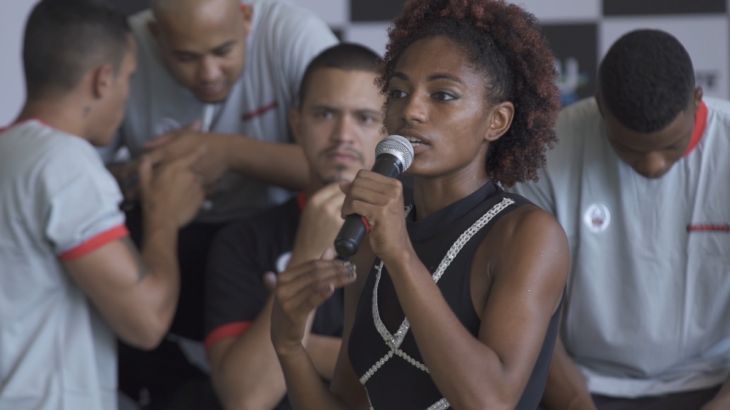Rio’s favela ballerinas
Amid ongoing drug gang wars in Rio’s favelas, one woman is giving hope to the children of Complexo do Alemao.

More murders happen in Brazil than in almost every other country on earth, most of them in favelas like the Alemao in Rio de Janeiro.
The slum spreads over the hills west of the city’s main airport like a shabby blanket. Up to 70,000 people live here. With various drug factions fighting for control, shots frequently thunder the labyrinthine streets.
Keep reading
list of 4 itemsInside the pressures facing Quebec’s billion-dollar maple syrup industry
‘Accepted in both [worlds]’: Indonesia’s Chinese Muslims prepare for Eid
Photos: Mexico, US, Canada mesmerised by rare total solar eclipse
Before hosting the 2014 football World Cup and the 2016 Olympic Games, the government sent forces in armored vehicles into the favelas to pacify them.
Hopes were high then, not only for the country to finally recover from a deep recession, but also for an end of the violence.
![Tuany Nascimento teaches ballet to Rio's favela kids [Johannes Musial/Al Jazeera]](/wp-content/uploads/2018/03/226588b563dc4d8e9faaf45118e2f5c3_18.jpeg)
Days after the Olympics, however, Brazil plunged into political turmoil. The county’s left-wing President Dilma Rousseff was impeached and replaced by Michael Temer, an unpopular conservative entangled in corruption allegations.
And while 85,000 soldiers had patrolled Rio de Janeiro’s streets during the Games, the number of homicides quickly went up again when they left.
Many victims of the narco fights and stray police bullets are children and teenagers. To get girls in the Alemao slum away from gangs and guns, Tuany Nascimento started teaching them ballet.
The 24 year old started dancing herself when she was five, hoping to become a professional one day, and competed at the world’s biggest gymnastics event Switzerland. Needing to support her family, she eventually gave up her dreams and got a job instead.
But she never stopped dancing. She gathered dozens of girls from the neighborhood, many of whose brothers, fathers or uncles are in some way involved in criminal activities, and began to teach them how to twist and turn their bodies.
Several times a week, they practise the beauty of ballet at a sports court in the favela, where police officers only show up with bullet poof vests and assault rifles.
Director: Johannes Musial
DOP: Ruda Capriles
Fixer: Henrique Hermann
Sound: Paulo Anomal
Executive Producer: Andrew Phillips